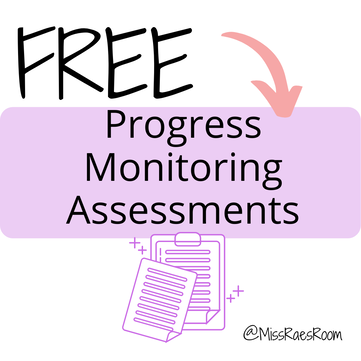Are your students cheating on phonological assessments? Maybe! Phonological awareness is the most powerful predictor of achievement in reading. It is a critical component in learning to read any alphabetic writing system. Research has proven that deficiencies in phonological awareness are responsible for most word-level reading problems and can be used to predict poor reading and spelling development. Furthermore, research has demonstrated that systematic teaching of phonological awareness skills to all kindergarteners and first graders, we can reduce reading problems by 50 to 75 percent! But when students struggle to make progress with this instruction - or in reading in general - we need to intervene! Early intervention is key! And in order to implement effective interventions, we should be strategic in our assessments. We can use these assessments to design and guide our interventions. Phoneme manipulation tasks are more highly correlated with reading measures than segmenting tasks. These manipulation tasks can best assess advanced phonemic awareness skills. BUT - students can CHEAT on phoneme manipulation tasks. Are your students cheating on phonological assessments? Maybe! Students can “cheat” on assessments that ask students to delete phonemes and substitute phonemes. They do this by using something called a mental spelling strategy, rather than by using learned phonemic awareness skills. If you ask a student to say the word /cat/ and then say /cat/ without the /c/ sound, they can "picture" the word in their head and "picture" the deletion of the /c/ sound. This would not end in an automatic response. And it does not mean that the student has advanced phonemic awareness skills! Instead, it could indicate that a student does not have these skills! So how do we know if our assessments are reliable and accurate enough to prevent student cheating??? One way to prevent “cheating” is through assessments of nonsense words or words that are orthographically inconsistent. Nonsense words, or orthographically inconsistent words are pronounceable letter strings that are not English words. For example, /cat/ is a real word that is orthographically consistent, but /jat/ is a nonsense word. And the most common reason a student would struggle to read a nonsense word is due to lagging phonological awareness and blending skills. Another way to prevent cheating is to add a timed element to the assessment. Timed tests prevent cheating. Phonological manipulation tasks do not become tests of working memory when they are timed because they require instantaneous responses. When a test requires student responses to be one second or less, the test is not assessing the student’s working memory ability, but rather, proficiency and efficiency with the skill. So now that we know two ways to prevent our students from cheating on phonological awareness tests, are we back to being teachers who have to create our own materials including assessments? NO - teachers do enough already! They shouldn’t have to create their own assessments too! Teachers do enough already! They shouldn’t have to create their own assessments too! There is already a test that will prevent cheating!
The Phonological Awareness Skills Test (PAST) is an informal, verbally-administered diagnostic tool, used to evaluate 14 different aspects of phonological awareness. The PAST actually correlates more strongly with reading than most commercially available assessments. The CTOPP-2 is the go-to test that research supports as being the best measure of phonological awareness skills, and the PAST is highly correlated to the CTOPP-2. The PAST is a criterion-referenced test that can be used to avoid cheating! The entire test is given orally, and each section should take no longer than 3-4 minutes to administer. Due to the fact that the tester is able to give corrective feedback after each test item, a misunderstanding of directions can be ruled out, unlike on other tests such as the LAC-3 (a progress monitoring phonological awareness measure). And even better - the PAST includes a timing element! This means that when the PAST is administered an immediate response is required from the student. Because of the timing element and the orthographic inconsistency of the items, a student would have great difficulty compensating for phonological awareness skills via mental spelling. And get this? The PAST has five alternate forms, and it is FREE! Grab your own copy of the PAST on my blog by clicking HERE. By Miss Rae
0 Comments
Leave a Reply. |
CategoriesAll Comprehension CoPlanning CoTeaching Directed Reading DIY Fluency Fountas & Pinnell Graphic Organizers Guided Reading Lesson Planning Multi-Tiered Systems Of Support Phonological Awareness RAN Read And Respond Reading Reading Assessments Reading Comprehension Response To Intervention RTI Science Of Reading Science Of Reading For Special Education Teachers Special Education Special Education Eligibility Special Education Lesson Planning Teaching Strategy Visualizing & Verbalizing Visual Texts Vocabulary Writing Writing In Response To Reading |





 RSS Feed
RSS Feed